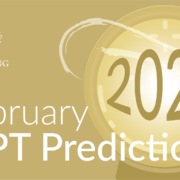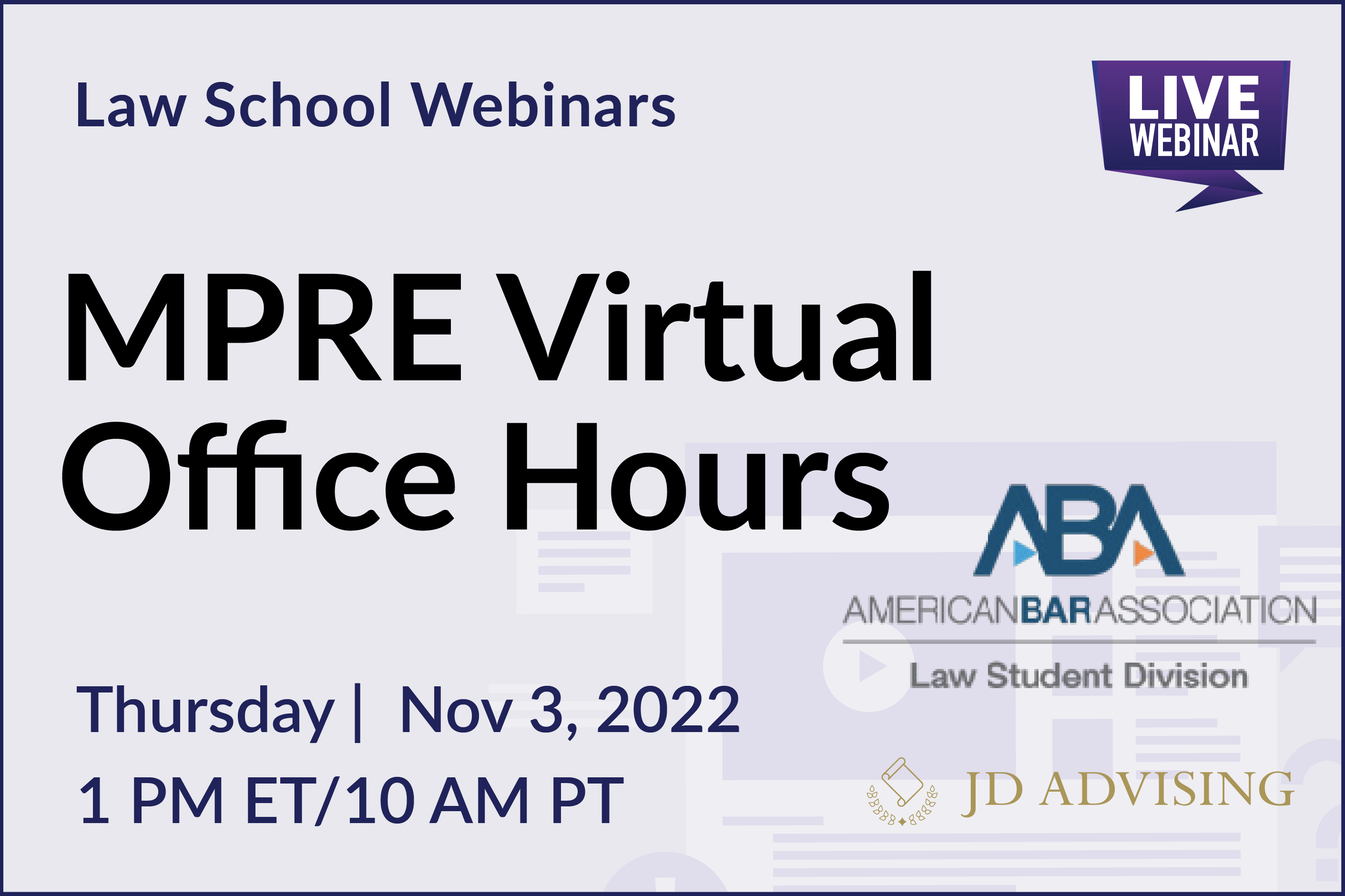How to Pass the Bar Exam After Failing
How to Pass the Bar Exam After Failing
Tens of thousands of people take the bar exam each year. On average, a little over 60% of those people pass the bar exam. That means that close to 40% of those people fail the bar exam. So, if you failed the bar exam, you are not alone. In fact, you are in good company! Many successful and famous people began their careers by failing the bar exam, including Vice-President Kamala Harris, former Secretary of State and U.S. Senator Hillary Clinton, former first lady Michelle Obama, and former president Franklin D. Roosevelt. In this post, we will share ways to help you join the ranks of those who have failed the bar exam and gone on to pass.
How to Pass the Bar Exam After Failing
Many students who fail the bar exam fear that because they did not pass the bar exam the first time, they will never be able to pass. Although subsequent takers as a group have a lower pass rate than first-time takers, it is absolutely possible to pass the bar exam after failing! You can take some steps to reach your goal of passing the bar exam. These steps are likely different from how you prepared for the bar exam the first time around. As such, we outlined them below.
1. Assess what went wrong
Assessing what went wrong when you took the bar exam is the first step to passing the bar exam after failing. There are a few ways to do this. First, you can look at your score report, if your jurisdiction provides one. Some jurisdictions provide reports that include a breakdown of your performance on each section of the exam. Others simply provide a score on the MBE section and your overall score. Use your score report to assess what went wrong. For example, if your score on the essay portion was significantly lower than your score on the multiple-choice section, you may need to spend more time practicing essays the next time around.
If you did well on the essays and the multiple-choice but had low scores on the performance test section, focusing on the performance test section needs to be part of your plan for passing the bar exam after failing.
Another way to assess what went wrong is to objectively review your previous bar exam preparation. How realistic was your study schedule? Did you allot enough time for studying? Did you use a commercial bar prep course? If you did, did you complete all or most of your commercial bar prep course? Did you feel comfortable with your course’s materials? If the answer to these questions is “No,” these are things to address going forward.
Additionally, there are some other questions you can ask yourself. Were there issues in your personal relationships (e.g., a breakup or loss of a loved one)? Were you sick at all? Did you move? Did your family or friends not understand or respect your need to study? If the answer to any of these questions is “Yes,” these are things to try to rectify the next time you prepare for the bar exam, although some of these things—such as illness—are out of your control.
Additionally, talk to other bar exam takers—both those who passed and those who did not—to learn what they did or did not do during their preparation. This information can help guide your future bar exam preparation.
2. Assess what went right
Assessing what went right when you took the bar exam is another important reflection to make as you prepare to re-take the bar exam. The ways to assess what went right are similar to those assessments regarding what went wrong. For example, if your score report shows that you scored high on the MBE, that is a good indicator that your MBE preparation was solid. If you did well on the essays, your preparation for that section of the bar exam was likely satisfactory.
Next, think about your previous bar exam preparation. Was your study schedule realistic? Did complete all or most of your bar prep course? Did you feel supported by friends and family? If the answer to these questions is “Yes,” these are situations that you should try to recreate for your next bar exam preparation.
3. Create a new plan
After assessing what went wrong and what went right, the next step in passing the bar exam after failing is to create a new plan. This is a critical step that repeat-bar exam takers often overlook. If the plan you used before resulted in a failing score, using the same plan is not likely to result in success the next time. This does not mean that you should abandon everything you did the first time. The purpose of assessing what went wrong and what went right is to take inventory of your original plan and decide what to keep and what to get rid of.
When creating a new plan, look at the things that went wrong and determine if you can change those things or if you should discard them. For example, you can probably change how much time you spent studying. Additionally, if you spent too much time making flashcards or using too many study materials, you should consider abandoning those practices the next time around.
One of the most important decisions to make when creating a new plan to pass the bar exam after failing is whether to use the same bar prep materials or to use something different. This decision can be guided by your assessment of what went wrong and what went right. If you felt comfortable with your bar exam prep course materials, sticking with those materials might be a good idea.
Most bar exam prep companies offer a free course to repeat takers who complete a certain percentage of the course. This can provide a strong incentive to use the same materials the next time. However, it can be worthwhile to take a step back and objectively assess whether those materials worked for you. It is a good idea to especially focus on the outlines, as those are the most important bar exam prep resource. If you had trouble understanding or memorizing your outlines, if your outlines were too long to memorize, or if your course provided so many outlines that you did not know which one to memorize, it might be time for a new set of materials.
Another important part of creating a new plan is to have a realistic study schedule, particularly if finding time to study was an issue previously. Even if your study schedule was not a problem, it can still be reevaluated as your personal situation has likely changed. For example, if you started a new job, changed your exercise routine, or discovered that you study better in the mornings, a study schedule revamp might be in order.
4. Don’t overcorrect
A mistake we often see students after failing the bar exam is overcorrecting. Overcorrecting occurs when a student focuses on low-scoring subjects to the exclusion of other subjects. For example, suppose that after failing the bar exam, a student looks at their score report and sees that they scored high on Real Property and Torts but scored low on Constitutional Law and Contracts. In an effort to bring up the low Constitutional Law and Contracts scores, the student does not study enough for Real Property and Torts for the next administration because they focus all their efforts on Constitutional Law and Contracts.
This often leads to an “overcorrected” situation in which the student finds that on the next bar exam, their Constitutional Law and Contracts scores are high but now their Real Property and Torts scores are low.
Overcorrecting can also happen with entire sections of the bar exam. If a student performs well on the multiple choice but poorly on the essays, they may spend all their study time for the next bar exam administration working on essays and neglect their preparation for the multiple-choice section. This can lead to a situation where the student’s essay scores improve but at the cost of their MBE score.
To avoid overcorrecting, use a holistic approach to studying. Although it is tempting to ignore your strengths and focus solely on your weaknesses, it is important to maintain those strengths while addressing the weaknesses. One way to do this is to incorporate focused study time into your schedule for weak subjects or sections while allotting time to review stronger areas as well.
5. Reset your mindset
Many students approach the bar exam from a place of fear and feeling overwhelmed. This mindset can discourage students from the possibility of passing right from the beginning of their bar exam preparation. This is not a good place to start! If you found yourself in this situation, taking time to reset your mindset for the next administration can be worthwhile. No one can deny that preparing for the bar exam is a huge undertaking that requires enormous effort.
However, instead of focusing on those negatives, remember that tens of thousands of people pass the bar exam every year. Almost all those people have a similar legal education experience to yours. Additionally, all those people faced at least one challenge (and likely several) in preparing for the bar exam. Because there are so many people who have passed the bar exam, you can do it, too!
Another way to reset your mindset is to get excited about the next round of bar exam preparation. This may sound silly (or impossible!), but it is doable. Additionally, it can have dramatic results. One repeat taker told us that she had adjusted her mindset after failing the bar exam and was now excited to start studying for the bar exam again. This student’s new mindset was likely an important contributor to her success on the bar exam when she took it a second time.
Do not underestimate the power of positive thinking when it comes to bar exam prep!
6. Consider an assessment for learning differences
Another way to pass the bar exam after failing is to have an assessment for any learning differences. Learning differences are more common than most people think. Additionally, a person can have a learning difference all their life without realizing it. These differences can be subtle, such that the person might not even be aware of it. Yet, the person may struggle with tasks such as reading, comprehension, and memorization in ways that others don’t. Receiving an identification of a learning difference can provide the student with resources and treatment that would otherwise be unavailable. These resources and treatment can mean the difference between a passing score on the bar exam and a failing one.
7. Consider a break
The time you spent studying for the bar exam was a period of high stress. The weeks of waiting for results were probably wearying. Learning that you failed the bar exam was likely an upsetting and emotional event. The result of these experiences can leave some students with very little energy or motivation to dive into another round of bar exam preparation. If that is your situation, consider taking a break before starting bar exam prep again. There are advantages and disadvantages to taking a break, so this is a decision to make carefully. If you determine that taking a break is a good approach for you, it may be an important contributor to helping you pass the bar exam the next time!
You Can Pass the Bar Exam After Failing!
Although failing the bar exam is a discouraging event, it does not mean the end of your legal career. You probably know several successful attorneys who failed the bar exam and later went on to pass. With the right approach, you, too, can pass the bar exam after failing!
Looking to Pass the Bar Exam?
Free Resources:
- 🌟Bar Exam Free Resource Center: Access our most popular free guides, webinars, and resources to set you on the path to success.
- Free Bar Exam Guides: Expert advice on the MBE, the MEE, passing strategies, and overcoming failure.
- Free Webinars: Get insight from top bar exam experts to ace your preparation.
Paid Resources:
- 🏆One-Sheets: Our most popular product! Master the Bar Exam with these five-star rated essentials.
- Bar Exam Outlines: Our comprehensive and condensed bar exam outlines present key information in an organized, easy-to-digest layout.
- Exclusive Mastery Classes: Dive deep into highly tested areas of the MBE, MEE, MPT, and CA bar exams in these live, one-time events.
- Specialized Private Tutoring: With years of experience under our belt, our experts provide personalized guidance to ensure you excel.
- Bar Exam Courses: On Demand and Premium options tailored to your needs.
- Bar Exam Crash Course + Mini Outlines: A great review of the topics you need to know!
🔥 NEW! Check out our Repeat Taker Bar Exam Course and our new premier Guarantee Pass Program!











Leave a Reply
Want to join the discussion?Feel free to contribute!